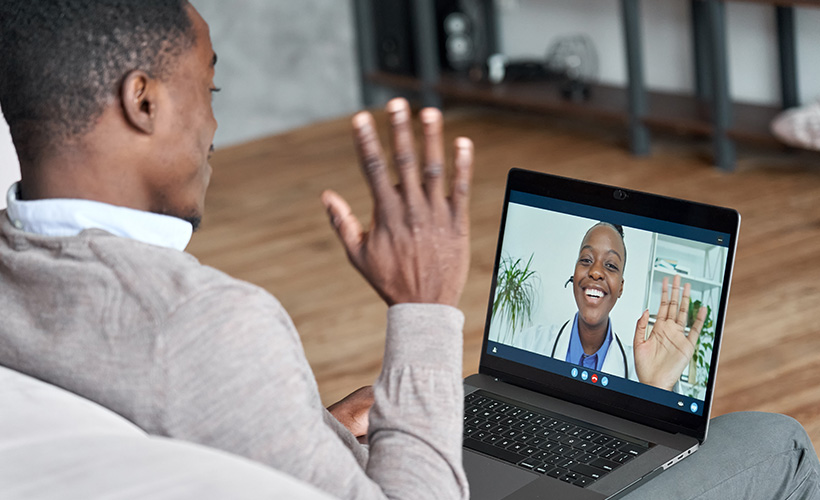You are a digital inclusion champion.
If you work in a library, you are part of an organization that contributes to a more digitally equitable community. Your library likely provides lifelines like access to a high-speed Internet connection, computers and technology, formal digital literacy instruction, or informal tech help.
Now imagine the impact you could make with more money, more staff, and more resources.
There is a new federal program that could help you turn that vision into reality. The Digital Equity Act (DEA) will offer multiple funding opportunities over the next five years that are well-aligned with the work of libraries. But it’s up to us to make sure our programs and services are included.
What Is the Digital Equity Act?
In late 2021, Congress passed a large infrastructure package called the Infrastructure Investment and Jobs Act (IIJA). One of its components was the Digital Equity Act, which includes 2.75 billion dollars over five years. It is intended to generate and support digital inclusion efforts at the state and local levels. Projects may include physical infrastructure, technology access, or digital literacy education. The program will be administered by the National Telecommunications and Information Administration (NTIA), with funding released in three phases:
- $60 million for state planning grants
- $1.44 billion for state implementation grants
- $1.25 billion ($250 million a year for 5 years) for competitive grant program
State planning grant work is getting underway now, with states beginning to convene stakeholders to determine what programs they should pursue for their implementation grants.
Where Do Libraries Fit In?
Libraries are exceptionally well prepared to offer the kinds of services supported by the DEA for two reasons: because of our longstanding digital equity work, and due to our connections in communities large and small across the nation.
Think about digital equity and digital literacy initiatives you offer already or want to develop. Do you provide classes in computers or technology? Have (or want) a Makerspace? Do you circulate laptops or hotspots? Provide access to telehealth? Do you offer one-on-one tech help, drop-in times, or a Digital Navigators service? Are you hoping to improve or expand your Internet connectivity for public use? Imagine what a larger-scale, higher-impact version of this work might look like.

Top Tip: Focus on partnerships, collaborations, and community-wide efforts.
In particular, consider how the library might partner with other community organizations, or other libraries in the state, to scale up your programs or impact. This is large-scale funding, so a community-wide collective effort is possible and likely preferable. Your partners may not know everything the library has to offer, so this is also an excellent opportunity to educate them.
How Can I Access Funding?
At each phase of the funding process, there are opportunities for libraries to participate.

Right now, a small portion of funds are being released as planning grants to states. Although libraries won’t receive funding directly at this stage, it is important to get involved quickly. The plans that states develop now will guide how they spend their (much larger) implementation grants in the next phase. This is the moment to ensure that libraries are included in the state’s plan, so they are eligible for funding later.
Top Tip: Engage with state and local decision-makers. Ensure they know about your technology and digital literacy offerings.
When your community’s leaders and partners understand the vital role libraries can play, and consciously include libraries in planning for the larger digital equity ecosystem, libraries and communities all benefit. Engaging with leaders around the DEA can also have lasting benefits even beyond current funding. This is an opportunity to raise community awareness of the library’s technology and digital literacy resources, which could lead to future opportunities and collaborations.
After states receive their planning and implementation grants, NTIA will open a third round of funding. Individual organizations and agencies—like libraries—will be able to apply directly for competitive grants. The American Library Association (ALA) is working with NTIA and other stakeholders on plans to release information, resources, and guidance for libraries. Additionally, you may want to contact organizations in your area, like your state library association or state library, to find out what local efforts are underway.
Top Tip: Keep an eye out for communication about the Digital Equity Act from ALA, as well as from library organizations in your state.
Want to Learn More?
Here are some resources to help you dive deeper into the DEA.
- What Libraries Need to Know about the Digital Equity Act by Michelle Frisque
- BroadbandUSA from NTIA for official updates, detailed documents, and application support
- The National Digital Inclusion Alliance compiled resources to advocate for the passage of the DEA, and the site still contains helpful, concise information about the Act. New updates and trainings will be shared on their website.


